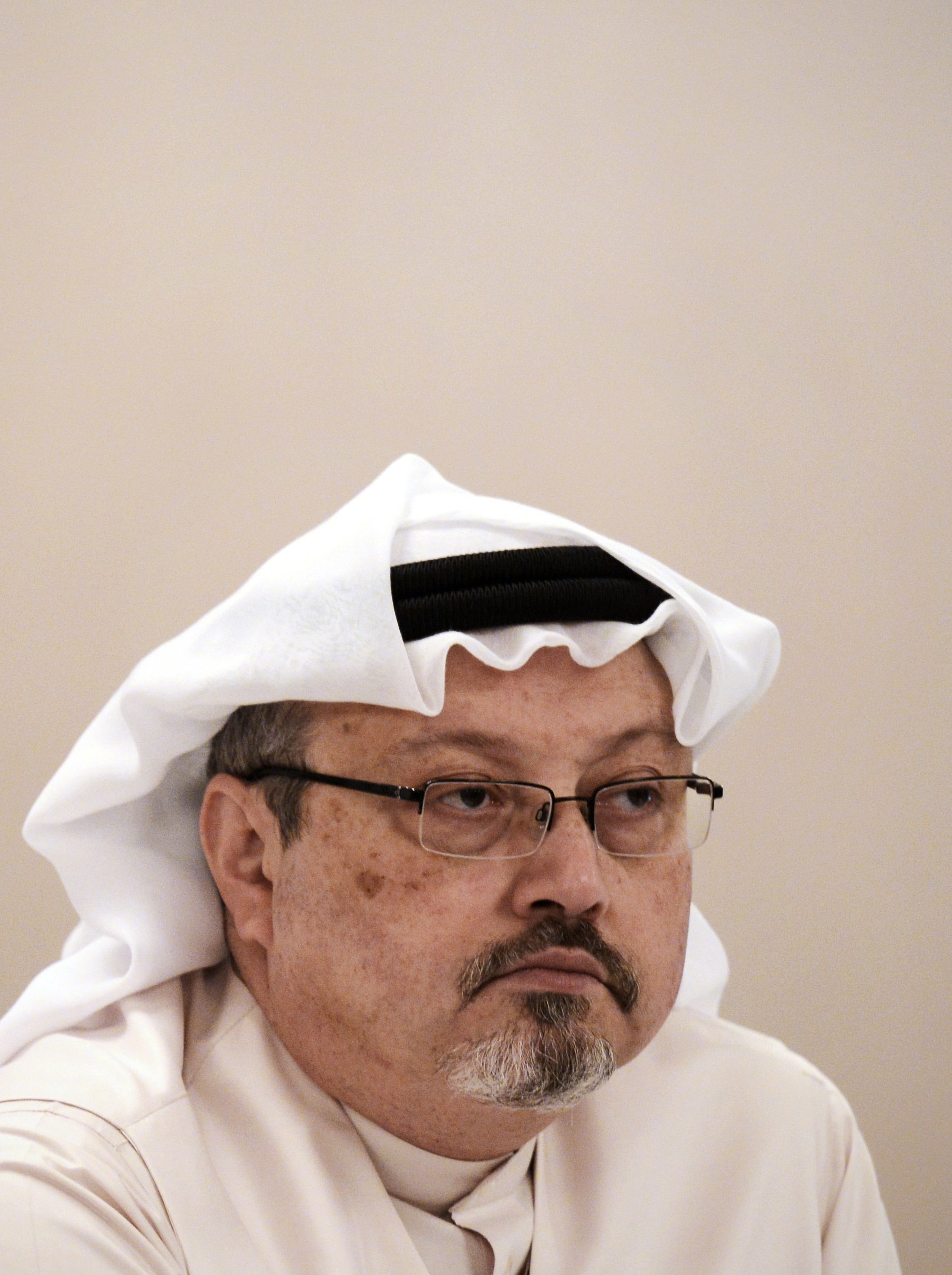
Source: AFP
Kamran Adil
While examining the nature of ‘international legal order’, the legal theorists have long been divided over its very existence. In international affairs, it comes under discussion episodically. Recent events that remained central to attention of media, have once again brought the debate to the fore. These events include: murder of Jamal Khashoggi, a Saudi journalist who was killed in Turkey at the Saudi consulate, the Trump rhetoric about ‘America First’ that implies termination of international treaties, the ineffectiveness of the United Nations system in bringing justice to Palestinians who had relied on the international organization to address their grievances and the new arms race in the outer space that aims to develop array of tests of anti-satellite (ASAT) weapons that must be developed as civilian and military activities of developed nations heavily rely on satellites.
From ontological point of view, the persistent questions remain the same. In the context of the US, the constitutional basis of the authority of the President in foreign relations to enter into international agreements and their withdrawal and the role of the Congress to counterbalance the power of the President, are at the heart of the concept of the rule based international order. Similarly, the European Union, takes a regional view of the international legal order where it tends to strike a balance between regional and international treaties. The Chinese view has also transformed from purely socialist understanding of international law to capitalist interpretation of international law, wherein, it has started discussing the intellectual property rights as well as international trade rules that suit it economically. Another critical question is the element of the international legal order that ensures compliance of the international law. The compliance part of the order has once again come under discussion due to the murder of Jamal Khashoggi. Consent that forms the basis of treaty law is not the only casualty of the case; it has also brought into question the status of customary international law that has its roots in antiquity and status quo. The questions of immunity and privileges attached to a building of a consulate coupled with the extra-territorial application of the criminal law of a country have perplexed many a legal mind.
Contrary to public knowledge, the diplomats derive their immunities and privileges from the Vienna Convention of Diplomatic Relations (VCDR) that is much more protective than the Vienna Convention of Consular Relations (VCCR) that protects consular personnel who have less protective legal regimes at their disposal. The question of jurisdiction of criminal law vis-à-vis the international law is also at the heart of the case as the domestic and internal legal orders come face to face in incongruent manner. Likewise, the question of fixing the responsibility is not straightforward as the line between state responsibility and individuals’ responsibility is not easily drawn in the case. International human rights lawyers invoke articles 2, 4, 6 and 7 of the United Nations Convention Against Torture and Other Cruel, Inhuman or Degrading Treatment or Punishment (UNCAT) to link the matter of murder of Khashoggi with the state responsibility of Saudi Arabia. Article 2 provides that ‘no exceptional circumstances whatsoever, shall be…invoked as a justification of torture’: the legal provision is drafted in a way that it obligates the states to prevent torture. Article 4 provides for criminalization of acts of torture by the states and article 6 provides for taking into custody the person alleged to have committed torture; the nub of the whole legal framework of the UNCAT is that the state responsibility cannot be separated from individual’s responsibility in cases of relating to human rights.
In international affairs, the legal position is most often than not ultimately contingent upon the political milieu. It must be noted that the basis of the customary and treaty law is consent of a state, which is defined by political and not the legal order. The adjudicatory mechanisms available at the international level in form of the International Court of Justice and the International Criminal Court are also consent based fora, and anticipating their utilization is also reading too much into the law.
The stocktake of the legal questions might sound intellectually tempting and one may infer that the international legal order is waning, but the fact is that the rule based international system has institutionalized in a manner that its non-compliance instances may prove a fraction of its compliance regime. The international legal order, in its present form, is a product of multilateral acts and its unwinding is not likely to be spontaneous. Notwithstanding the case of Jamal Khashoggi, one may state that the existence of international legal order is as uncertain or certain as it ever was.
Kamran Adil is an Independent Researcher.




